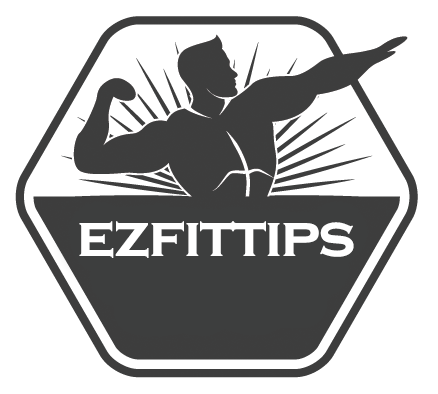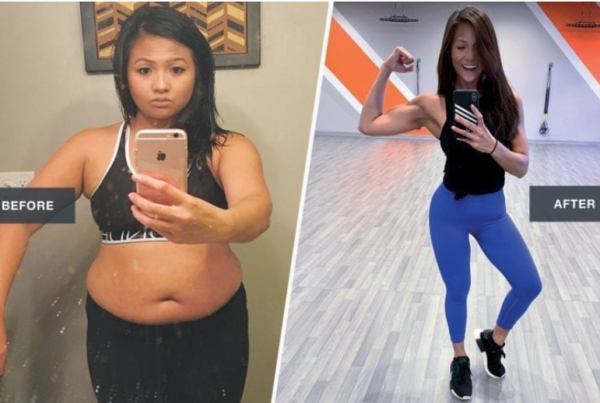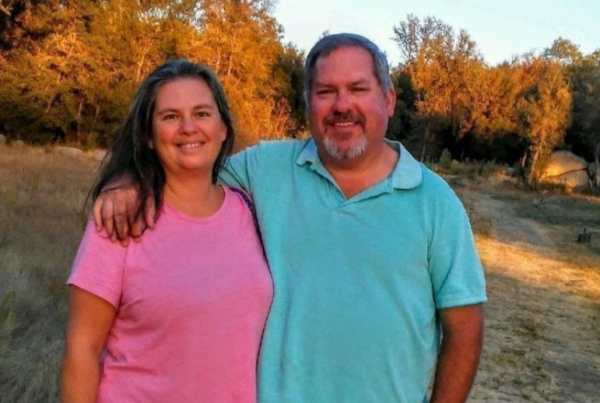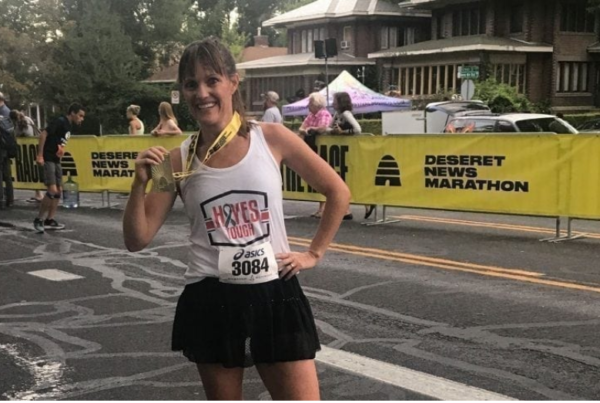Lori Fromlak is about to run her fifth marathon and is setting her sights on longer-distance ultramarathons. The Lori Fromlak of three years ago couldn’t even run half a minute without stopping. “And when I ran that 30 seconds,” she says, “I was winded.”
But she was out there, eager to make a change. In 2014, Fromlak, a hospice nurse near Pittsburgh, weighed 200 pounds and had been a regular smoker since her teens. She and her sister-in-law made a pact to lose weight together, and both began using MyFitnessPal and following a couch-to-5K program to get healthy. And soon, both were dropping weight.
It wasn’t easy, but the results came. Fromlak started running and tracking her food on MyFitnessPal that June, knowing the progress might come slowly. But it did come. By the time she ran her very first 5K that Thanksgiving, she was already down to 163 pounds. By her second 5K in the spring, she was 145 pounds. But she didn’t stop there. It turned out she wasn’t just using running to lose weight — she was a pretty good runner, too.
“There are people who run and there are runners,” explains Fromlak’s training partner, Scott Wardle. “Lori is a runner.” From the very first time they ran together, Wardle knew she “had it.” Soon, she was racing and qualifying for the Boston Marathon, which requires roughly 8-minute miles from its participants. When she runs the historic race next year, she’ll do it at her current weight of about 115 pounds.
Wardle has only known Fromlak since she started running, and when he sees those pre-2014 pictures, it’s hard for him to believe she’s the same person. She almost can’t believe it herself.

Every dreamer deserves support. Discover inspiring tips, tools and stories of dreamers like you to help kick-start your own dream pursuit.
SHE DID IT FOR THE KIDS
The beginning of Fromlak’s journey was the hardest. The extra weight and smoking made it hard just to break into a run. A marathon was the furthest thing from her mind.
“It’s tough,” she recalls. “The more weight you’re carrying, the slower you’re going to go.”
When she started, 11-minute miles were a very modest, reasonable goal. But she kept at it, alternating walking and jogging. She also began keeping a food diary on MyFitnessPal, which she still does to this day to help her train. Slowly, the weight started to come off and, bit by bit, she got a little faster. Soon, she met her goal: run a 5K in less than a half-hour. That’s when she started thinking about longer races.
READ MORE > A BRUTAL BREAKUP INSPIRED THIS MFP USER TO GET HEALTHY
Running and keeping track of what she was eating were two important steps in her transformation. They got her moving in the right direction, but the last step was the hardest: quitting smoking. Fromlak knew it was bad for her, but it’s not easy to break a habit you’ve carried for 20 years. It finally came down to her then 7-year-old daughter.
“I saw the disappointment in her face,” Fromlak recalls of every time she’d light a cigarette. It wasn’t until she finally reached a point when she was training for her first half-marathon in May 2015 that she knew she couldn’t keep it up. “I had to pick,” she says. “Did I want to keep running or did I want to smoke?”
BECOMING A RUNNER
As a full-time nurse, Fromlak works two eight-hour shifts and two 12-hour shifts each week. Most days, she wakes up around 3:45 a.m., runs, then wakes up her kids and takes them to school. If she has to get in a long run on the weekends, she wakes up early so she won’t be out too late after the kids are awake.
“She has a similar level of crazy to me,” says Wardle, who was introduced to Fromlak at a local race almost two years ago. The two got along immediately, and to this day still run around Pittsburgh in the dark, early-morning hours. As Fromlak started to increase her running ability, Wardle coached her to add speed and distance. Eventually, he shared the training plan he’d used to qualify for the Boston Marathon multiple times.
“She loved me and hated me for giving it to her,” he jokes. But she stuck to it, getting ever faster and making something that once seemed like pure fantasy an actual possibility.
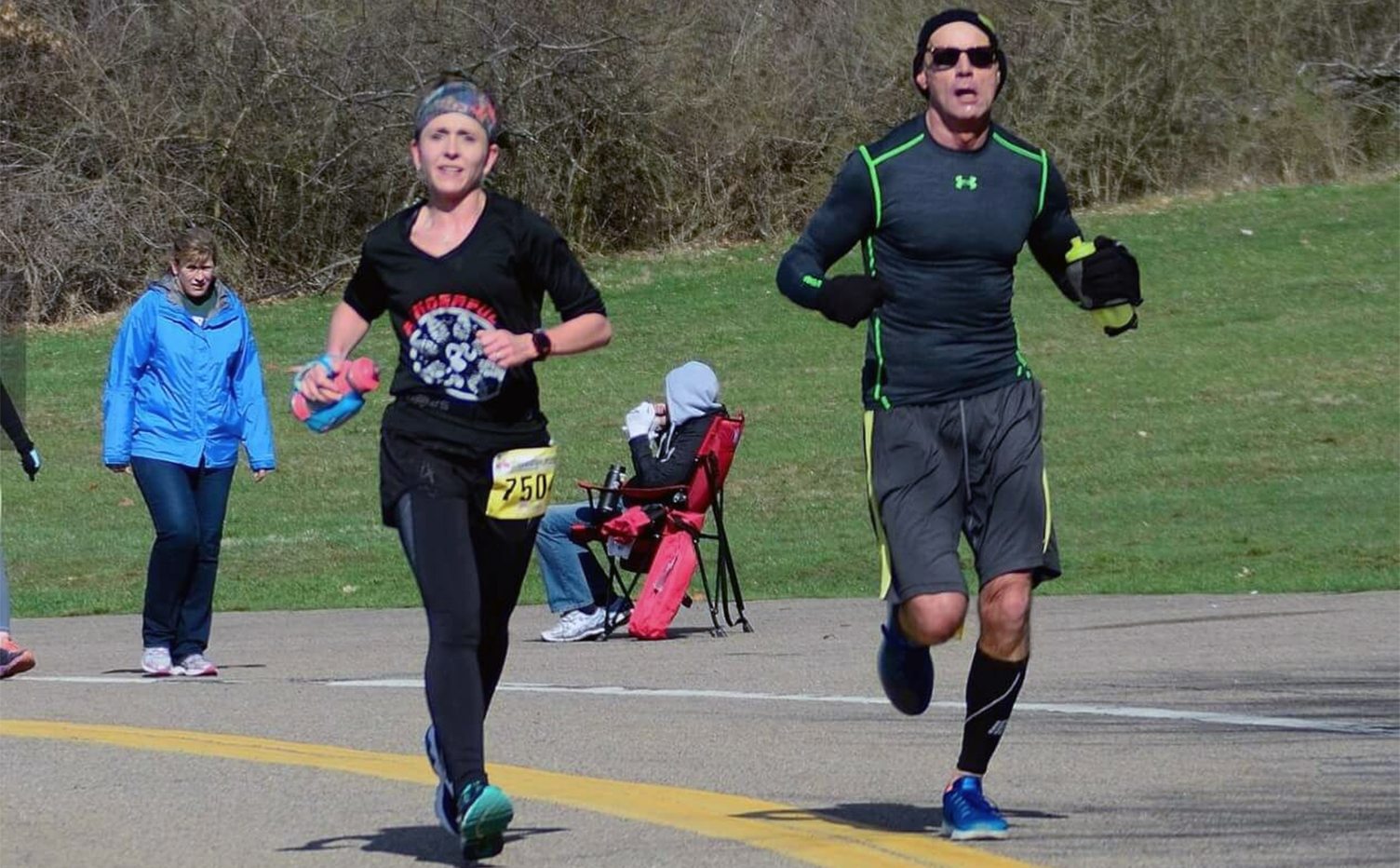
- READ MORE: How Running Transformed Mark’s Mental and Physical Health
Qualifying for Boston is a hard, long journey. Runners don’t just have to run a qualifying time for their age and gender classification; to ensure they have a spot, they often have to run even faster. Because so many people have wanted to run the famed race in recent years, would-be participants often have to run about 5minutes less than the standard to guarantee they’ll get in.
For Fromlak, that meant a sub-3:40 marathon. She didn’t quite get there during her first two marathons. The training and stress of trying to hit that goal led to injuries and disappointment. So, instead, she took a little break, regrouped and then ran the Philadelphia Marathon without putting as much pressure on herself. That’s when it all came together: She crossed the finish line in 3:30. A spot in Boston was hers.
MAKING A LIST
Fromlak keeps a running list of things she wants to do with her life. Most of the time, she makes them happen. She wanted to be a nurse, so she went to school and became a nurse. She wanted to skydive, so she went skydiving.
That experience actually made her realize she needed to improve her health. When tandem skydiving, you have to pull your legs up to avoid hurting the other person, and she struggled with that at her old weight.
As she became a runner, she added a marathon to her list. Then she added an ultramarathon and a 50K. She’s already crossed those things off.
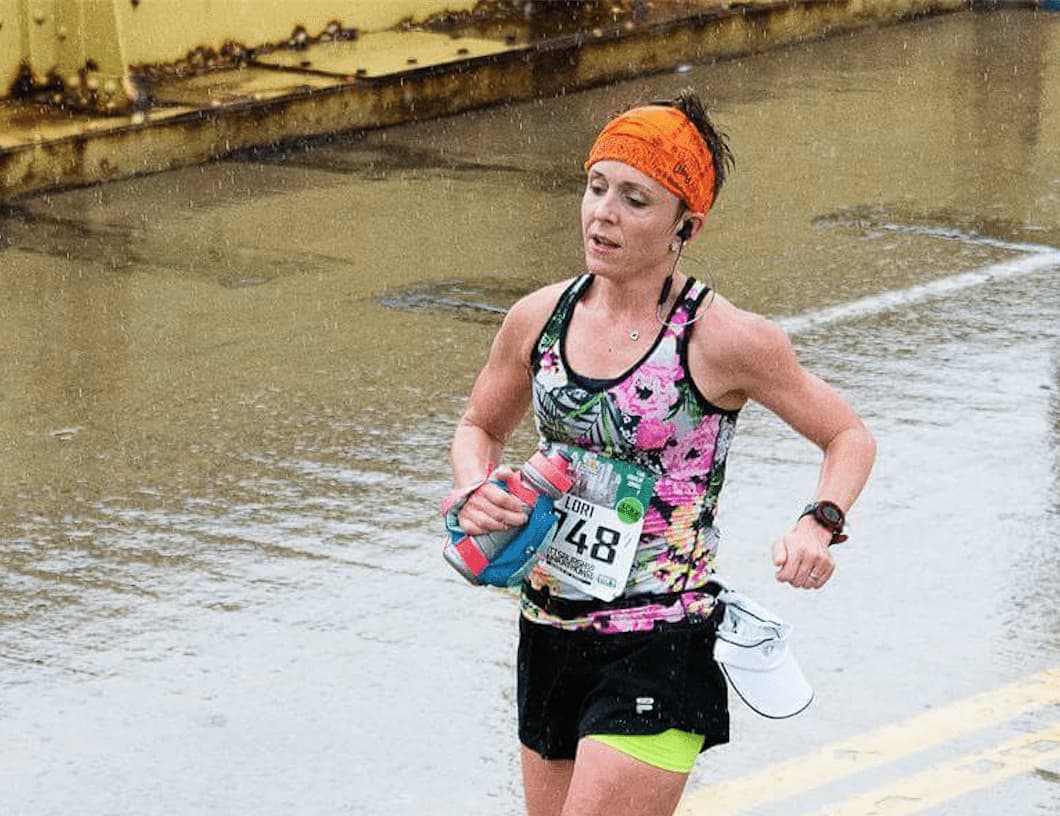
Now, she wants to get into personal training and help other people go through their own transformations and achieve their fitness goals. At Wardle’s urging, she started leading pace groups at races, helping other people hit their goals. On May 21 — her 37th birthday — she’ll run her fifth marathon, pacing a group of runners in the Pocono Marathon in northeastern Pennsylvania.
Wardle’s also encouraging her to keep training and get even faster — possibly take another 20 minutes off her marathon time. “If she says she’s going to do something, she does it,” he says.
Today, Fromlak’s daughter, now 9, and 5-year-old son come to her races. They’ll even join her sometimes on fun runs or 5Ks. All the training and fitting everything in still isn’t easy, she admits, but it’s a lot easier than it was at the beginning, and her kids have been able to see her dedication and transformation.
“Now, when I have friends starting to run and getting frustrated, I tell them to just stick with it,” she says. “Eventually, you’ll get faster.”
Cross that off the list. What will she decide to do next?
Written by Kelly O’Mara, a professional triathlete and reporter outside San Francisco, where she is an on-call producer for the local NPR station. Her works appears regularly in espnW, Competitor, Triathlete and California Magazine.
